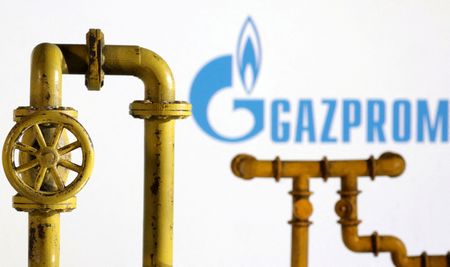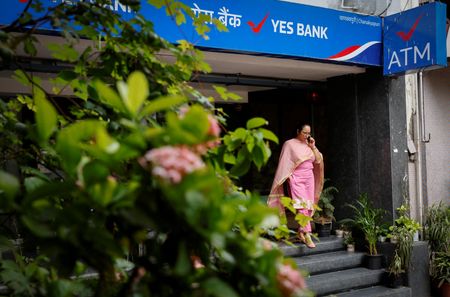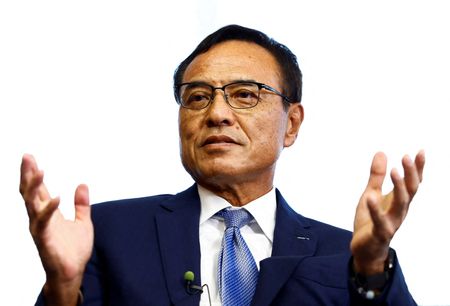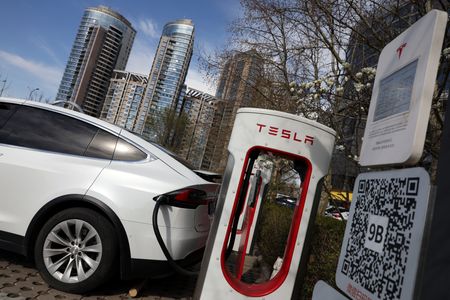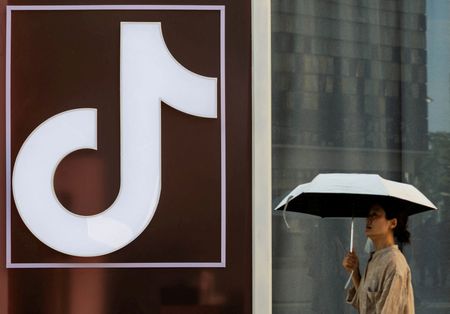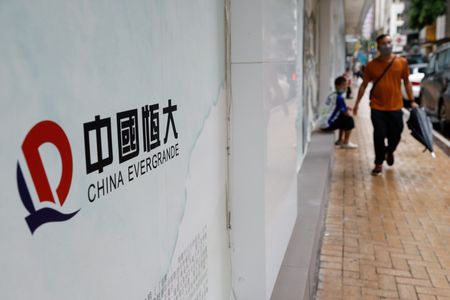By Vladimir Soldatkin and Lidia Kelly
MOSCOW (Reuters) -Russia agreed to supply more natural gas to China and signed a memorandum on building the vast Power of Siberia 2 pipeline, but has yet to agree on pricing for one of the world’s most expensive gas projects, Gazprom said on Tuesday.
The “no limits” partnership between China, the world’s biggest consumer of energy, and Russia, the world’s biggest producer of natural resources, has strengthened since the West imposed sanctions to punish Russia for the war in Ukraine.
By deepening ties with his “old friend” Russian President Vladimir Putin, Chinese President Xi Jinping is showing he can resist U.S. pressure to turn its back on Moscow. However, the lack of progress on pricing for Power of Siberia 2 indicates that he is also demanding steep discounts from Russia.
Since losing a lucrative chunk of the European gas market, Russia has pivoted towards China. Gazprom has been seeking an agreement for years on the Power of Siberia 2 pipeline, capable of delivering 50 billion cubic metres (bcm) per year to China through Mongolia from the Arctic gas fields of Yamal.
Alexei Miller, the CEO of Gazprom, told Russian news agencies that an agreement had been reached to increase supplies via the existing Power of Siberia pipeline, which runs from Eastern Siberia to China, to 44 billion cubic metres (bcm) a year from 38 bcm.
“Today, a legally binding memorandum was signed on the construction of the Power of Siberia 2 gas pipeline and the Soyuz Vostok transit gas pipeline through Mongolia,” Miller said. Soyuz Vostok is designed to be the portion of the Power of Siberia 2 pipeline, traversing Mongolia.
GAS PRICE LOWER THAN EUROPE
But the price of gas supplied via the pipeline – one of the key factors for understanding the cost of building the pipeline and how those costs will be shared amongst the parties involved – will be agreed separately, Miller was quoted by the TASS state news agency as saying.
The price, Miller said, would be lower than the price charged by Gazprom to European buyers due to the vast distances and terrain over which pipelines had to be built.
It was also not clear who will build the pipeline.
After Putin met Xi and Mongolian President Ukhnaagiin Khurelsukh in Beijing, the Kremlin said that 22 agreements had been signed during Chinese talks, including a deal on strategic cooperation between Gazprom and China National Petroleum Corporation, but it gave no details.
Building a gas pipeline from the vast Bovanenkovo and Kharasavey gas fields of northern Russia across the wilderness of Siberia to Mongolia and then to China would be the world’s biggest and most capital-intensive gas project, Miller said.
Reuters reported last month that China was seeking to buy more Russian gas through an existing pipeline as talks between the two countries had failed to make significant progress on building a new link.
NEW ERA
Putin and Xi, who have both pushed back against the perceived humiliations of the 1991 collapse of the Soviet Union and centuries of European colonial dominance of China, say the world is entering a new era with the West in decline.
Kirill Babaev, head of the China and Contemporary Asia Institute in Moscow, a think-tank that advises the Russian government on China, said the Beijing meetings had shown that the West had failed to isolate Russia.
He said despite the unknowns over the pipeline, the project now had the political blessing of the leaders of Russia, China and Mongolia.
China is Russia’s biggest trading partner, the biggest purchaser of Russian crude and Russian gas, the second-biggest purchaser of Russian coal and the third-biggest purchaser of Russian LNG, according to the Kremlin.
Gazprom supplies natural gas to China through a 3,000 km (1,865 mile) pipeline called Power of Siberia under a 30-year, $400 billion deal launched at the end of 2019 and supplies are expected to reach the planned capacity of 38 bcm this year.
Miller said there had also been an agreement to increase the gas China buys through a pipeline from Sakhalin Island in Russia’s Far East to 12 bcm annually from a prior agreement for 10 bcm.
But Russia’s gas exports to China are still a small fraction of the record 177 bcm it delivered to Europe in 2018-19 annually.
(Reporting by Lidia Kelly in Melbourne, Vladimir Soldatkin and Gleb Bryanski in Moscow and Colleen Howe in Beijing; Writing by Guy Faulconbridge; editing by Louise Heavens and Sharon Singleton)

